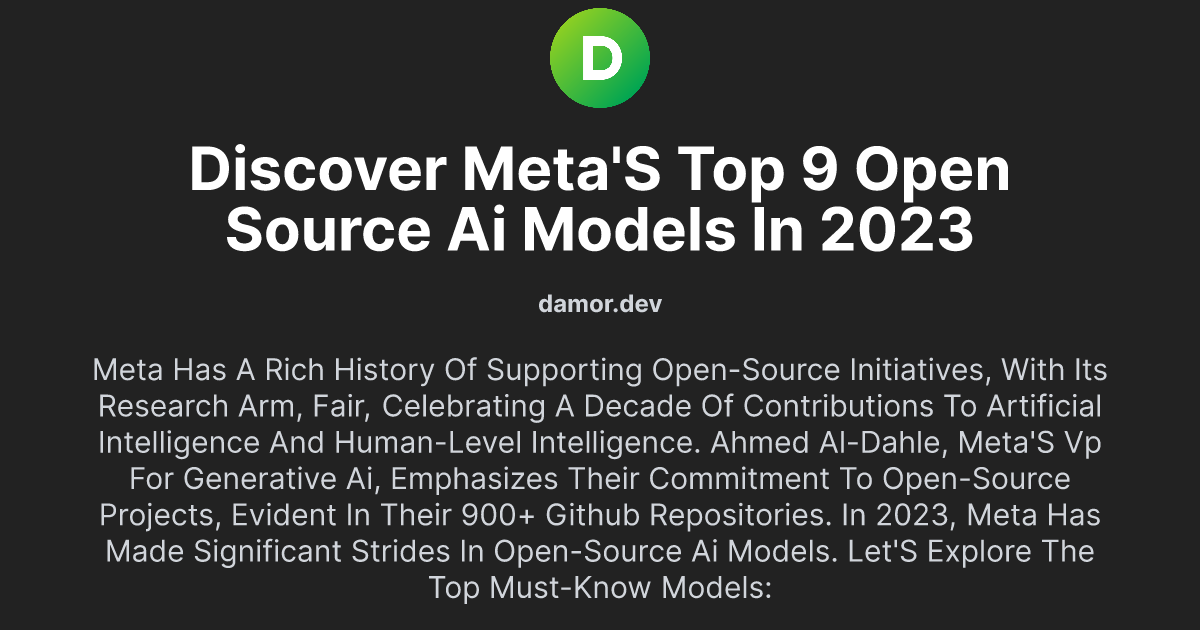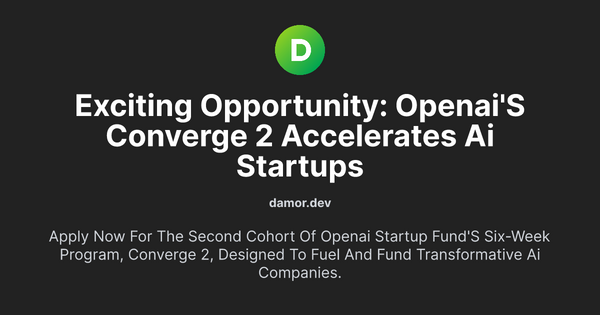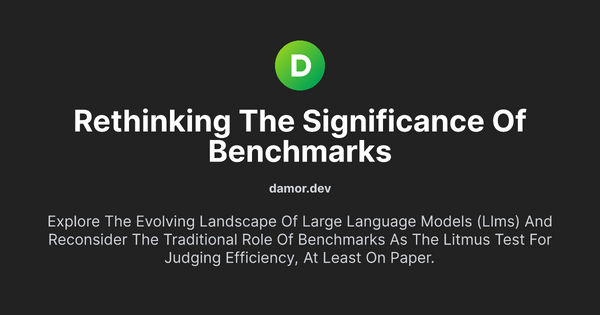Discover Meta's Top 9 Open Source AI Models in 2023

Discover Meta's Top 9 Open Source AI Models in 2023
Meta has a rich history of supporting open-source initiatives, with its research arm, FAIR, celebrating a decade of contributions to artificial intelligence and human-level intelligence. Ahmed Al-Dahle, Meta's VP for generative AI, emphasizes their commitment to open-source projects, evident in their 900+ GitHub repositories.
1. Llama 2:
Meta, akin to the Robinhood of the LLM community, has lowered the entry barrier for developers. Llama 2, launched in partnership with Microsoft, has reshaped open-source language models. The company plans to unveil Llama 3 next year, making it accessible for both researchers and commercial use.
2. Seamless:
Meta introduces "Seamless," a cross-lingual communication system anchored by SeamlessExpressive and SeamlessStreaming models. Built on SeamlessM4T v2, these models showcase enhanced performance in speech recognition and translation, pushing the boundaries of real-time cross-lingual communication.
3. AudioCraft:
The AudioCraft family of models offers a user-friendly interface for generative audio exploration. Comprising MusicGen, AudioGen, and EnCodec, these models provide high-quality audio. Meta has made the pre-trained AudioGen model, EnCodec decoder, and all AudioCraft model weights and code available for research purposes.
4. DINOv2:
Meta AI unveils DINOv2, a method for training high-performance computer vision models. This versatile backbone eliminates the need for fine-tuning, marking a new era in computer vision methodologies.
5. XLS-R:
Meta fosters global inclusivity in voice technology with XLS-R, surpassing previous multilingual models in speech tasks. It sets new benchmarks in speech recognition, translation, and language identification, promising an enhanced and more inclusive voice technology landscape.
6. Detectron 2:
Facebook AI Research introduces Detectron 2, the successor to Detectron, representing the next generation in detection and segmentation algorithms. It advances computer vision research and production applications within Facebook, setting new standards for innovation and performance.
7. DensePose:
Meta takes a significant stride in advancing human understanding with DensePose, a real-time approach mapping human pixels to a 3D surface-based model. The introduction of DensePose-COCO, a large-scale ground-truth dataset, enhances accuracy and applicability, revolutionizing human-centric image interpretation.
8. Wav2vec 2.0:
Facebook AI Research introduces wav2vec 2.0, a revolutionary self-supervised learning model mastering speech recognition technology. This release democratizes speech recognition, making it more accessible and effective across a broader linguistic spectrum.
9. VizSeq:
Embarking on a new era of efficiency in text generation tasks, Meta introduces VizSeq, a Python toolkit that elevates user productivity. Offering a user-friendly interface and harnessing NLP advancements, VizSeq enhances visual analysis in text generation tasks.
Explore more about these open-source models to stay at the forefront of Meta's groundbreaking contri


![[Solved] ZlibError:zlib:
unexpected end of file - payload](/content/images/size/w600/2024/02/Screenshot-2024-02-18-143905.png)


